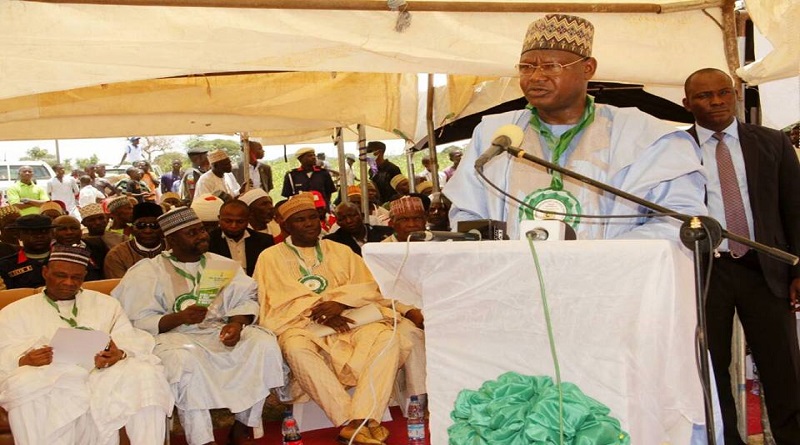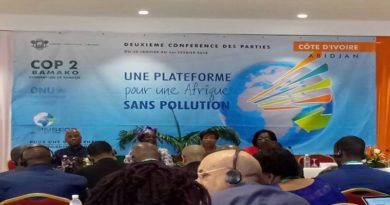World Desertification Day: Minister calls for cooperation to achieve land degradation neutrality
Nigeria Minister of State for Environment, Ibrahim Jibrin on Wednesday August 2, 2017 called for cooperation among actors in the efforts to combat desertification in the country as a way to achieve land degradation neutrality as part of a broader effort to achieve the Sustainable Development Goals and build a future of dignity and opportunity for all.
The minister made the call in Gombe, Gombe State, northeast Nigeria at the commemoration of year 2017 World Day to Combat Desertification, Land Degradation and Drought (DLDD).
He stressed that DLDD negatively affect water resources, drives deforestation, food security; and contributes to environmentally induced migrations adding that it is amongst the most critical sustainable development challenges.
According to him, DLDD undermine government efforts in poverty eradication, fighting unemployment and enhancement of economic opportunities especially in rural communities.
Jibrin said the theme of the event “Our Land. Our Home. Our Future” is apt and a key for making Land Degradation Neutrality a fundamental solution for achieving the Sustainable Development Goals as adopted by the United Nations General Assembly in September 2015.
Specifically, he said Goal 15 of the Sustainable Development Goals calls on nations to protect, restore and promote sustainable use of terrestrial ecosystems, sustainably manage forests, combat desertification, and halt and reverse land degradation, as well as halt biodiversity loss.
“This becomes our pillar for sustainable land management for agricultural productivity and shelter (Home) for our present teaming population and the future generations. Today, I urge cooperation among all actors to help achieve land degradation neutrality as part of a broader effort to achieve the Sustainable Development Goals and build a future of dignity and opportunity for all.
“It is in this context that the World Day to Combat Desertification provides a unique occasion to remind all people that desertification and land degradation can be effectively tackled reminding us that solutions are possible, and that key tools to this aim lay in strengthened community participation and collaboration at all levels.
“Land is a vital resource for producing food and other ecosystem goods and services including conserving biodiversity, regulating hydrological regimes, soil nutrients cycling, and storing carbon, among others. Indeed, the most significant natural capital asset is productive land and fertile soils. As people rely heavily on land as their main source for farming and housing, especially the rural poor, human well‐being and sustainable livelihoods are completely dependent upon and intricately linked to availability and productivity of the land. Land also is the major employer in most of human endeavours such as agriculture, geology, biology, architecture, town planning, transportation, just to mention a few,” he said.
The Minister of State said “if we do not rise to this challenge of DLDD, we will not achieve our commitments for climate change adaptation and mitigation, biodiversity conservation, forest cover and the Sustainable Development Goals targets; we will not effectively alleviate rural poverty and hunger nor ensure long‐term food security nor build resilience to drought and water stress.
“This year’s WDD Commemoration advocates for the importance of inclusive cooperation on land management and contribute towards protective shelter for the present and future generations because land is a vital link to provide solutions to food security, housing, poverty eradication and employment generation,” he added.
The Minister who listed some of the policy documents developed by the government in combating DLDD appreciated the Gombe State government for hosting the event. He commended the development partners for providing funding and technical support to the country in addressing environmental issues.
Kayode Aboyeji




